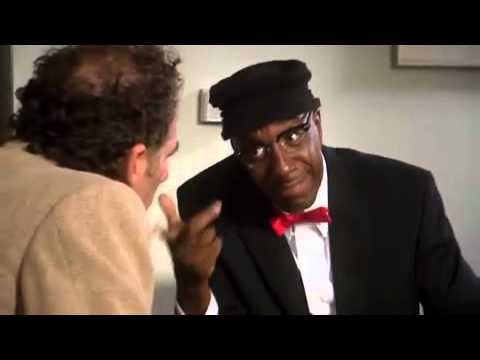On December 12, 1998 I had my Bar Mitzvah at Temple Chai in Long Grove, Illinois. My Torah portion was “Vayeshev” (“And he dwelt”), which is about Joseph and his many-colored coat.
My party theme was the very original “computers” and every guest received a “CLICK TO THE MAX” mouse pad.
Today is exactly 26 years later, meaning that it’s once again time to Recharge the Mitzvah.
I hadn’t learned about betting by the time of my Bar Mitzvah, but started playing poker with friends over the next couple of years, a game that is made up of lots and lots of bets. This started just for fun for small stakes and I wasn’t especially good at the beginning. Friends who were more aggressive tended to win the most.
A strangely high number of us who played together in high school went on to play professionally online. (Did our many hours of playing and strategizing together make us good or was poker just easy and the 2008 job market really bad?)
What I’ve realized is that many of the principles that we learned from playing poker and betting together made us better thinkers and better decision-makers who are more likely to take appropriate risks and to decouple decisions from outcomes and less likely to be affected by cognitive biases. Although we were actually betting, the principles are valuable as thought exercises or with play money — no gambling necessary.
From Immanuel Kant in Critique of Pure Reason:
The usual touchstone of whether what someone asserts is mere persuasion or at least a subjective conviction, i.e. firm belief, is betting. Often someone pronounces his propositions with such confident and inflexible defiance that he seems to have entirely laid aside all concern for error. A bet disconcerts him. Sometimes he reveals that he is persuaded enough for one ducat but not for 10. For he would happily bet one, but at 10 he suddenly becomes aware of what he had not previously noticed, namely that it is quite possible that he has erred.
Bet Mitzvah: A compilation of five books?
Starting in 2025, I plan to put together Bet Mitzvah, a set of materials that introduce betting and related concepts and the value that they can impart, especially as you become an adult.
The mission is to show the mental maturity gained from betting and to distinguish between betting as a valuable analytical truth seeking endeavor and not as a get rich quick scheme based on hunches.
It would be fun to organize into five books and 54 parashot, or sections. (That is the most ambitious version — it could be much shorter!) Sections will include important math concepts like probability and expected value, Bayes’ rule about updating with new evidence, adverse selection (if someone’s offering you a bet, watch out), game theory, incentives, and practical applications to games and life.
What’s so great about betting?
From Bryan Caplan:
Betting “locks people into positions” in the laudable sense that it makes them clearly state what their positions are. Once positions have been spelled out, though, betting spurs the opposite of dogmatism. The clarity of the resolution fortifies right people and disconcerts wrong people. That’s progress toward truth.
Betting is about knowing and feeling the consequences of your decisions and moving your beliefs towards the truth. It means that you have skin in the game, even if it’s not real money. It’s about developing the awareness to say “I might be wrong” and the tools to figure out when this is true. It involves research, rational analysis, objective thinking, quantifying risk, opportunity selection, and probability estimates.
Prediction markets use betting and wisdom of the crowd to forecast future events and outcomes. Insurance companies effectively use risk assessment and probabilities to take bets on their policies/customers.
Abraham’s gamble
In the Torah, Abraham is commanded to sacrifice his son Isaac and Abraham gambled that Isaac would be spared. From David Polish in Abraham’s Gamble:
Abraham argued with God and in order to appease him, God says, “Some day, when your descendants are faced with death, I will remember what you did and I will save them.” Abraham got a hint here that Isaac would be spared, because otherwise how could God promise anything about future generations?
That’s updating beliefs from evidence in a high stakes scenario. And Abraham's "gamble" wasn't just about Isaac's survival, but about Abraham’s entire relationship with God. He was wagering his moral understanding of God (as a just and good deity) against this seemingly cruel command, with serious skin in the game.
Just as a Bar/Bat Mitzvah marks the beginning of moral and religious responsibility, understanding betting principles marks an important step in intellectual maturity. When we're willing to put our beliefs to the test, whether through actual wagers or thought experiments or sacrificing a child, we begin the process of examining, updating, and refining our model of the world.





Brilliant and beautiful Max
Never thought of Abraham's sacrifice as betting - neat!